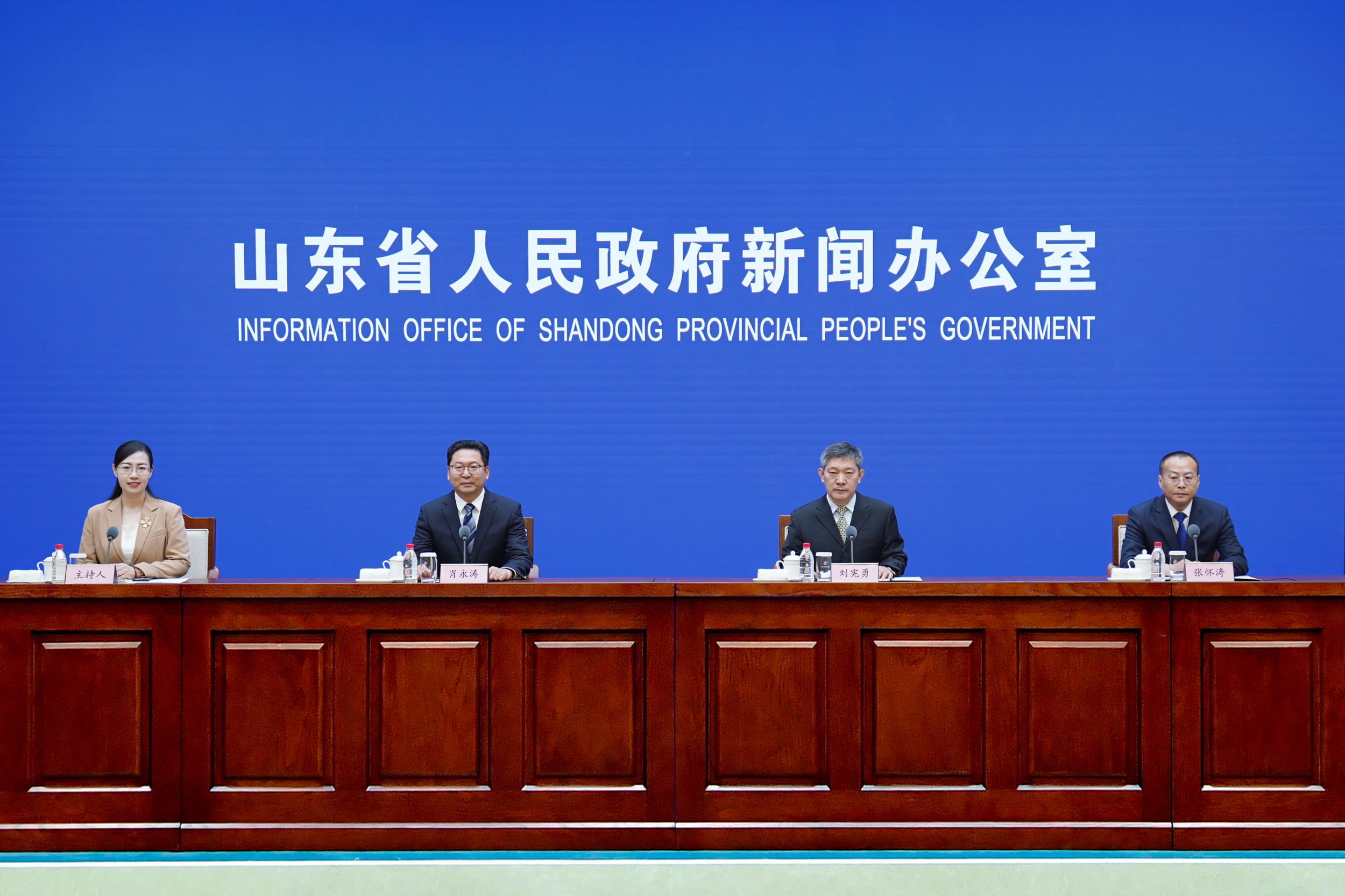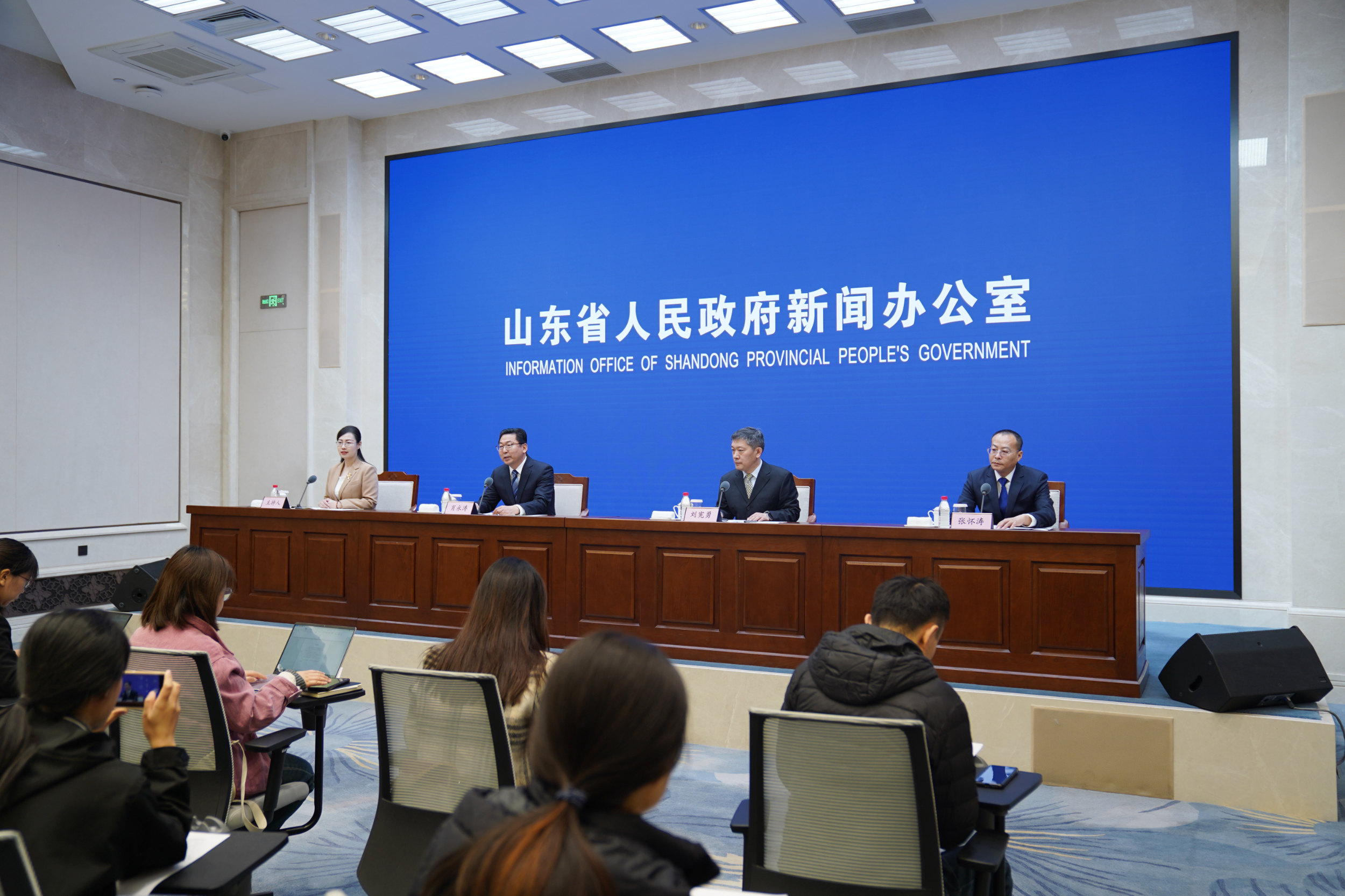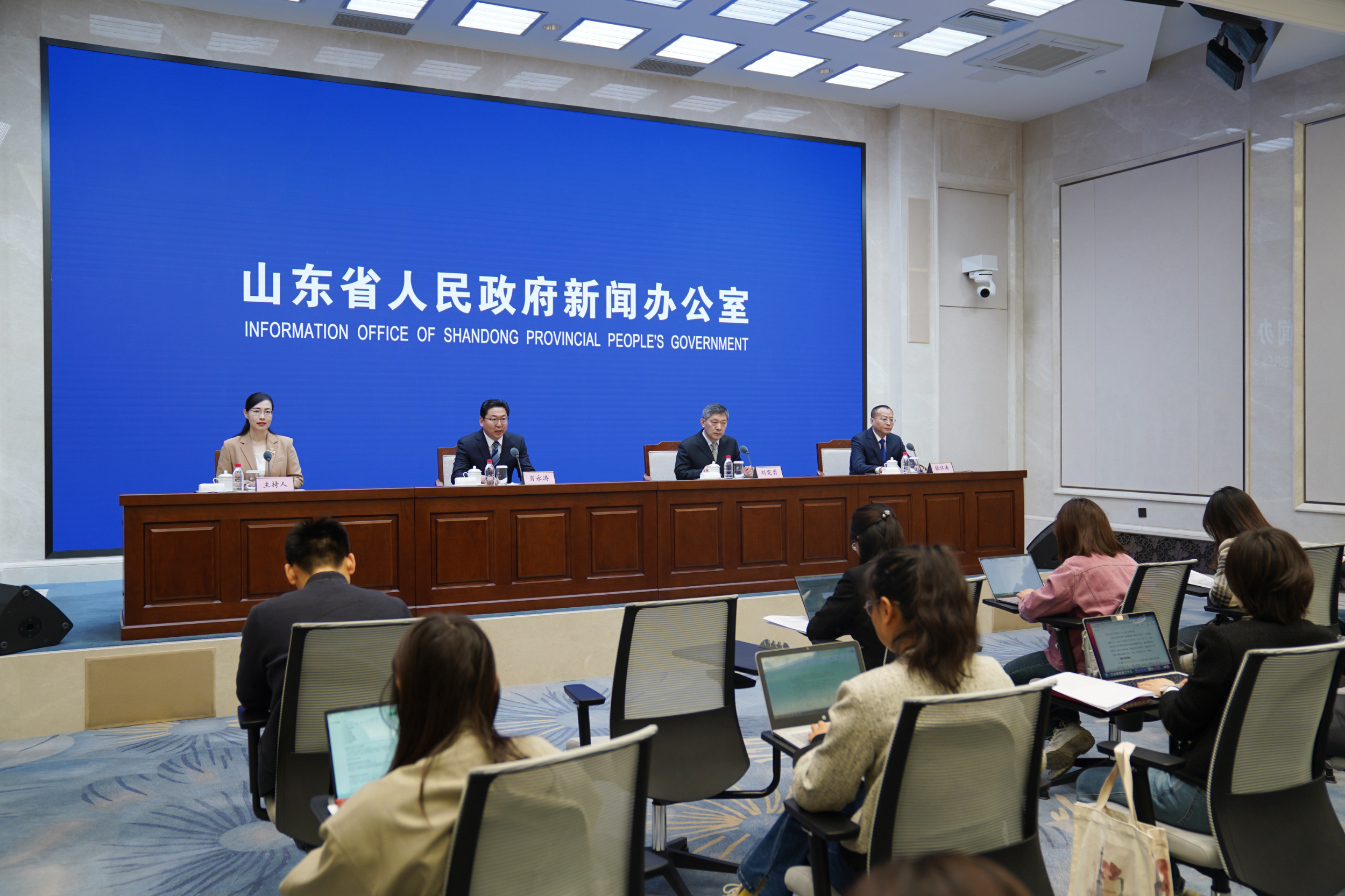Shandong has successfully completed the two compliance cycles of the national carbon market
"Since the official opening of the market in July 2021, the national carbon market has successfully completed two compliance cycles: the first compliance cycle is from 2019 to 2020, and the second compliance cycle is from 2021 to 2022. 2021 is the compliance year of the first compliance cycle, and all enterprises in Shandong Province have achieved 'due diligence'. 2023 is the second compliance cycle compliance year, with a compliance rate of 100% in the province, and a total of 225 power generation enterprises participated in carbon emission allowance trading, with a trading volume of 71.6908 million tons and a transaction value of 4.666 billion yuan, ranking first in the country in terms of the number of participating enterprises and the trading value. On the morning of March 28, the Information Office of the Shandong Provincial Government held a press conference to introduce the province's solid promotion of carbon emission quota implementation and help achieve carbon peak and carbon neutrality.
Xiao Yongtao, a member of the party group and deputy director of the Shandong Provincial Department of Ecology and Environment, said: "As a basic policy tool for China to achieve the 'dual carbon' goal, the carbon market has been running smoothly for nearly three years. Shandong Province has prepared and launched as early as possible, strengthened the data quality management of the whole process, formulated a plan for 'one enterprise and one policy', and took multiple measures to promote the implementation of quotas, and successfully completed the performance tasks of the two performance cycles. ”

Strengthen the capacity of implementation and improve the energy efficiency level of the industry
Carbon emission compliance is a key part of consolidating the responsibility of enterprises to reduce carbon emissions.
From the first compliance cycle to the second compliance cycle, a number of small coal-fired power units with low energy utilization efficiency and high carbon emission intensity have been shut down and transferred through carbon market trading and compliance, which has improved the overall energy efficiency level of the province's coal-fired power industry, and the quality of carbon emission data and compliance capacity have been significantly improved. For example, a power generation company has one circulating fluidized bed boiler with 240 steam tons per hour and three 150 steam tons per hour, and two 15 MW back-pressure steam turbine generators. According to the company's calculations, through the energy-saving technological transformation of waste heat utilization, the energy efficiency of circulating fluidized bed boilers has been increased by about 3%, and each boiler can reduce coal consumption by about 3,100 tons and carbon dioxide emissions by about 7,920 tons throughout the year when running at full load, which can save more than 630,000 yuan according to the current carbon market of about 80 yuan per ton.
Xiao Yongtao introduced that with the increase in the shutdown and elimination of backward units in Shandong Province, coupled with the market adjustment mechanism of rewarding the good and punishing the inferior, the carbon market has effectively promoted the shutdown and withdrawal of backward units with low energy efficiency and unreasonable operation methods, and the number of backward units included in the quota management has decreased year by year, and the overall energy efficiency level of the province's units has been significantly improved.
After the adjustment of the two compliance cycles, the awareness of carbon emission management of key power generation enterprises in Shandong Province has also been continuously enhanced, and the quality of carbon emission data has been significantly improved. In the first compliance cycle, the problem of large carbon emission accounting value and large quota gap due to inadequate carbon asset management has been basically solved. In the second compliance cycle, the quota benchmark value is tightened and the quota is tightened, the number of quota surplus enterprises in the province has increased from 146 in the first cycle to 186, and the number of quota gap enterprises has decreased from 174 to 128.

Carry out in-depth investigation and research and actively cooperate with market expansion
China's carbon emissions are mainly concentrated in key industries such as power generation, iron and steel, building materials, nonferrous metals, petrochemicals, chemicals, papermaking, and aviation. At present, China's carbon market only includes the power generation industry, and has successfully completed two compliance cycles, and the Ministry of Ecology and Environment is actively promoting the first expansion of the national carbon market.
It is understood that among the key industries of carbon emissions, the production process boundary of the electrolytic aluminum industry is clear and consistent, the data traceability is easy to obtain and the accuracy is high, and the quality is guaranteed, which is one of the key industries with a good carbon emission data base.
Zhang Huaitao, deputy general manager of Shandong Xinfa Group Co., Ltd., said: "Xinfa Group Co., Ltd., as one of the leading enterprises in the electrolytic aluminum industry, will actively cooperate with the inclusion of electrolytic aluminum in the national carbon market, do a good job in the traceability of electrolytic aluminum carbon emission data, use digital empowerment to improve data quality and efficiency, promote technical cooperation to improve carbon emission capacity building, adjust the energy structure to achieve carbon reduction at the source, and contribute to the healthy development of the carbon market and the realization of the 'double carbon' goal." ”
At present, Shandong Province is actively cooperating with the Ministry of Ecology and Environment to prepare for the expansion of the carbon market, and carries out annual carbon emission accounting report verification for more than 700 key emitting enterprises in eight industries such as electric power every year. Cooperate with special research to carry out special research, and put forward opinions and suggestions on quota allocation methods, accounting reporting methods, accounting requirements guidelines, and expansion implementation paths for key industries.
Shandong Province will prepare for the expansion of the national carbon market, actively guide enterprises to strengthen carbon asset management, continuously improve the quality of carbon emission data in the province, promote the green and low-carbon transformation and high-quality development of relevant industries and key emitting enterprises, and enhance the market competitiveness of enterprises." ”

Efforts should be made to improve systems and mechanisms to promote green and low-carbon development
Carbon emission trading is an important policy tool to achieve carbon peak and carbon neutrality, and China's first special regulation in the field of climate change - the "Interim Regulations on the Administration of Carbon Emission Trading" (hereinafter referred to as the "Regulations") will come into force on May 1 this year. For the first time, the Regulations clarify the carbon emission market trading system in the form of administrative regulations, providing a strong legal guarantee for the healthy development of the carbon market and opening a new situation of rule of law in the national carbon market.
At present, there are more than 300 power companies in Shandong Province included in the national carbon market, and the number of enterprises and compliance account for 1/7 and 1/10 of the country respectively, both of which are the first in the country. The promulgation of the "Regulations" provides an important legal basis for the province to promote the improvement of the quality of carbon emission data and strengthen the supervision of carbon emission trading.
Xiao Yongtao said that Shandong Province will thoroughly implement the "Regulations", formulate and introduce implementation plans, and strive to improve the institutional mechanism from the aspects of strengthening carbon emission data management, daily supervision, publicity and guidance, make full use of technical means such as big data analysis, strengthen the help and guidance of key emitting units and technical service institutions, further improve the quality of carbon emission data in the province, and ensure the healthy operation of the national carbon market. At the same time, taking the implementation of the "Regulations" as an opportunity, we will do a good job in "carbon articles", strengthen the analysis of compliance and market situation, serve the carbon asset management of key enterprises in the province, promote the transformation and upgrading of traditional industries, and help the construction of a green, low-carbon and high-quality development pilot zone in the province.







